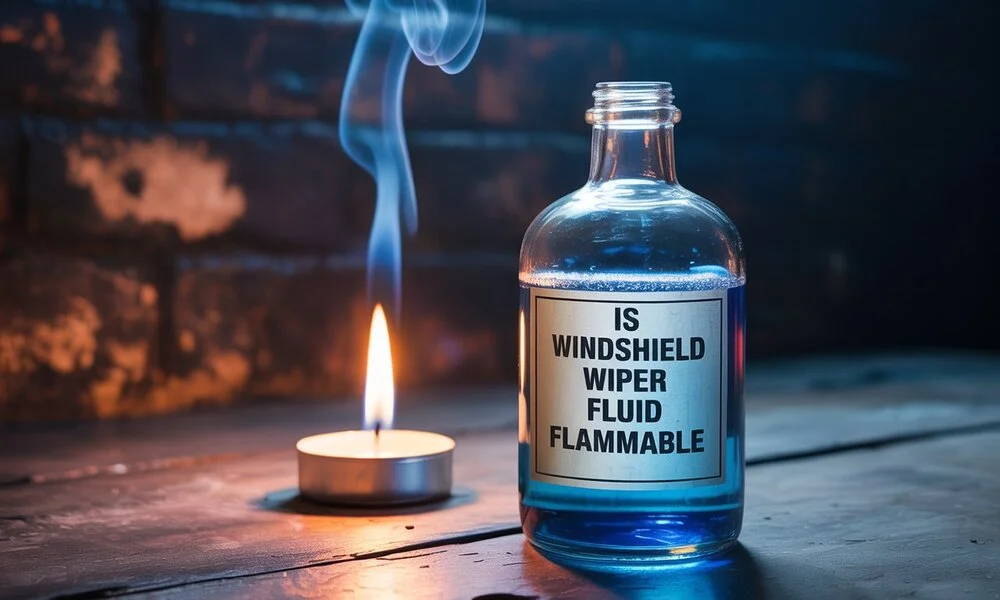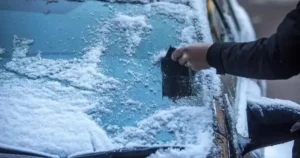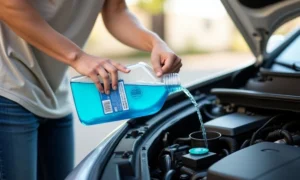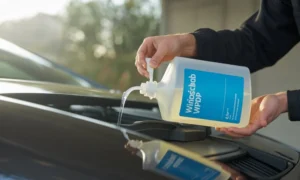You’re in your garage on a hot day, topping off fluids or tidying up supplies, when a sensible worry occurs to you: Is Windshield Wiper Fluid Flammable? It’s a question most drivers never think to ask, but the answer affects the safety of your home, your vehicle, and your family. Windshield wiper fluid isn’t just colored water it’s a chemical concoction that needs to be able to endure extreme weather, and those same attributes can also make it a hazard when misinterpreted.
Knowing how this fluid works, what it’s made of, and how to store and handle it right can help you keep from harm’s way. Chemistry and exposure risks. Let’s dissect the science, the risk, and the savvy safety tips that should be a given for every driver.
What Is Windshield Wiper Fluid Made Of?
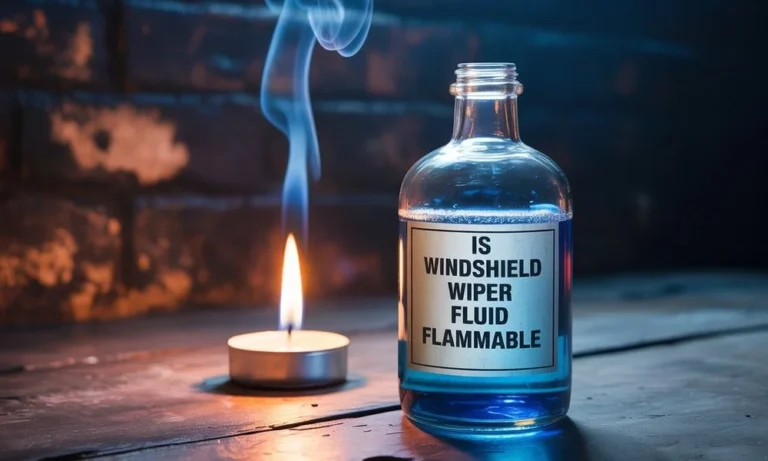
The windshield washer fluid seems simple, but its formula is carefully crafted. Most of these products contain three primary ingredients: water, detergents, and alcohol-based compounds. Each of these ingredients has a function in helping keep your windshield clean under various driving conditions.
Water acts as a solvent in the solution; it fills the role of distributing the fluid over the window uniformly. Detergents break down dirt, bugs, road salt, and grease. The key ingredient and source of hazard was alcohol. Alcohol allows for a non-freezing, fast-evaporating, and efficient cleaning solution, particularly in cold or soiled conditions.
Methanol is the most frequently used alcohol, but there are brands that use ethanol or isopropyl alcohol. These chemicals are powerful, cheap, and accessible, which is why they are in every supermarket. However, the chemical structure of alcohol is also what makes it flammable.
And this is when many drivers once again begin to scratch their heads: Is washer fluid flammable in the first place? That depends on the alcohol content of the formulation and how it is handled.
You can also read about: Will Windshield Wiper Fluid Hurt a Radiator?
Understanding Flammability and Flash Point
Flammability is not just about whether or not something burns immediately when it is lit, but also about vapor pressure and temperature. A liquid is considered flammable if it emits vapors that can catch fire in the presence of heat or an ignition source. This is determined by a characteristic called the flash point.
The flash point of methanol is very low, and flammable vapours can be generated at modest temperatures. Methanol-based products can catch fire, even diluted with water, if the right conditions are met. Heat, lack of ventilation, and open containers contribute.
In layman’s terms, this means a sealed, properly stored bottle should not cause any trouble, but if you store it carelessly and spill it on the floor of your kitchen near your stove, you might have some worries.
You can read about: Windshield Replacement in Austin TX
When and Why Fire Risk Increases
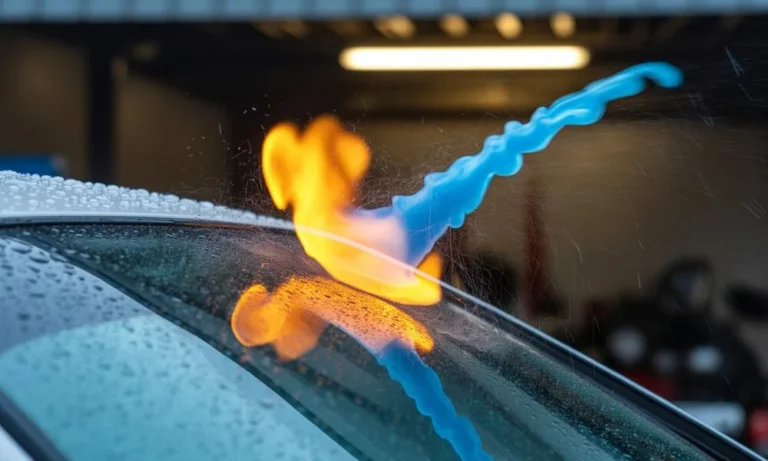
Not all windshield washer fluids pose the same risk. There are also increasing fire risks associated with the product, the environment, and user habits.
Winter formulations are made to resist freezing temperatures, and so they have a higher concentration of alcohol. Summer blends tend to be about bug and grime removal, and tend to have less alcohol in them. All-season) One makes sense between these extremes.
Heat is another matter of importance. A summer, closed-garage, a car trunk, or storage near appliances may elevate temperatures enough to accelerate vapor emission. It’s the vapors not the liquid that catch fire most easily.
It’s also critical to recognize that leaks, spills, and breached containers substantially increase the risk of ignition. Even tiny bubbles of vapor can catch fire if they happen to float over some spark or take a hike near some open flame. This is why texas reliable auto glass experts are calling windshield washer fluid flammable in certain situations, as it is not nearly as volatile as gasoline.
Why Alcohol Is Necessary Despite the Risk
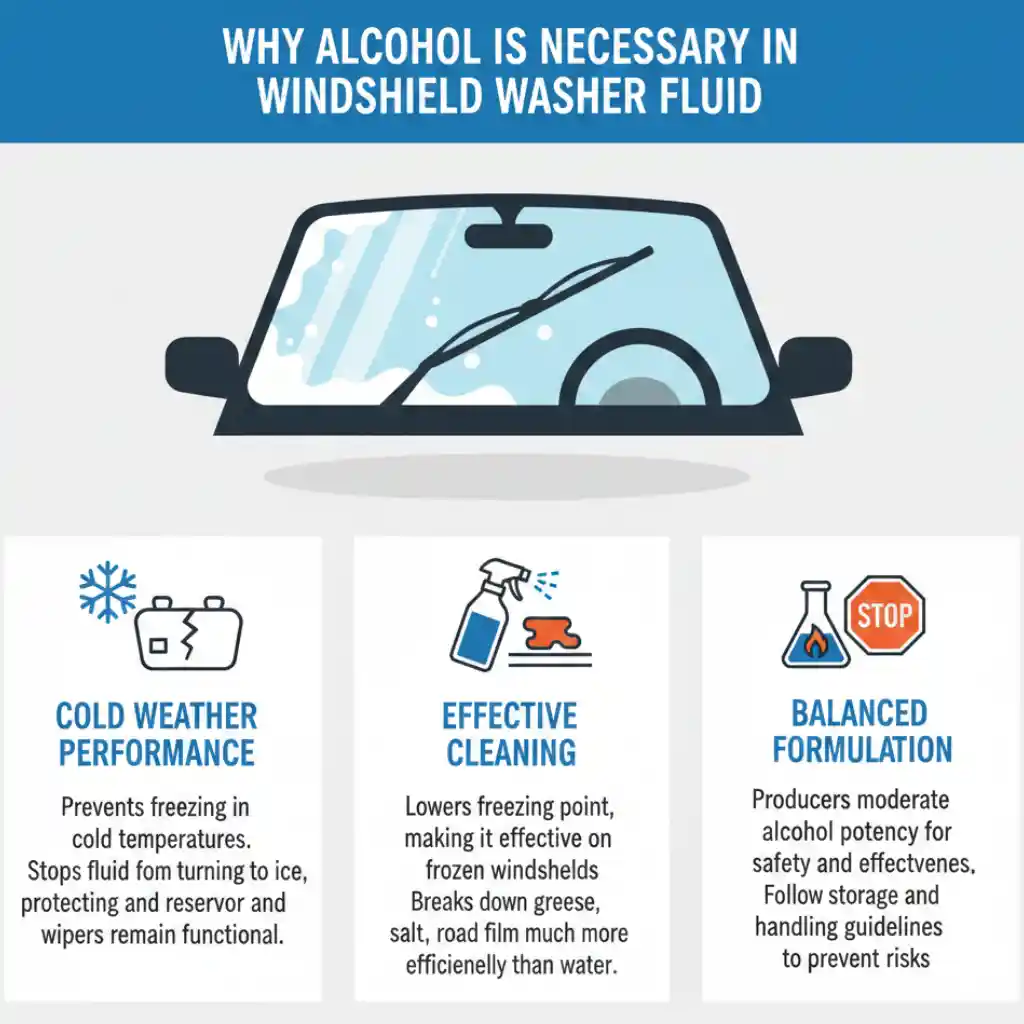
Of course, the natural question comes up: why is windshield wiper fluid flammable? Is it for everyday use? The question is one of performance.
Without alcohol, the fluid would freeze in washers in cold weather, cracking reservoirs and leaving wipers sealed between sheets of ice. Alcohol also reduces the freezing point of the solution, making it effective even on frozen car windshields. It even breaks down grease, salt, and road film much more effectively than water.
Producers moderate the potency of the alcohol in their products to strike a safe yet effective balance. That balance works at least when products are applied as intended, but there are problems when the guidelines for storage and handling are not followed.
Toxicity: An Overlooked Danger
Flammability is not its only problem. Methanol is poisonous when taken by mouth, breathed in high quantities, or absorbed through the skin in a prolonged manner. Health effects of even small amounts include damage to the eyes and the nervous system.
Children and animals are at higher risk because dashes of colored liquid are commonly used and left at floor level. Always store containers tightly closed, labeled, and in a safe place. Get medical help right away if you come in contact with it.
The conditions can also produce headaches, dizziness, and vomiting if fumes are inhaled in significant amounts. It’s one of those things that make sense to do in the fresh air or at least with the garage door open.
Safe Storage Practices for Home and Garage
Risk is significantly lower with proper storage. Always store windshield wiper fluid in its original container with the lid screwed tightly on and keep it in a cool, dry place. Do not store it next to water heaters, furnaces, power tools, or electrical panels.
Temperature is important. Heat raises the vapor pressure, making ignition more probable. When you can, keep fluid in a climate-controlled room as opposed to a stifling garage.
Don’t ever put washer fluid in drink bottles or any unlabeled container. This results in both poisoning and fire hazards. Inspect older containers occasionally for cracks or leaks, particularly if they have been sitting for a while.
Choosing the Safest Product for Your Climate
But not every driver needs an extreme cold-weather fluid. If you’re in a warm climate, pick a formula that’s rated for use in higher temperatures rather than for use in sub-zero temperatures. Higher freeze protection is achieved by adding more alcohol, but the more alcohol, the more flammable it gets.
Check the labels carefully. Check for ingredient lists, any safety warnings, and temperature ratings. Some brands are now selling low-alcohol or alternative formulas suitable for warmer climates.
Buying only what you need for the season helps with that, too. Large stockpiles add risk of exposure without providing real benefit.
Handling and Refilling Tips
Be sure to fill the washer fluid reservoir only when the engine is cool. No smoking, open flame, or electrical work in the vicinity while replenishing. Wipe up spills at once and wait for vapors to clear before replacing the hood.
If you spill fluid in the cabin or trunk, be sure to ventilate well. Vapors lingering in closed spaces are potentially more hazardous than exposure outdoors.
That’s a few little precautions that make for a lot less chance of accidents, and really simple maintenance that stays simple.
Conclusion
So, Is Windshield Wiper Fluid Flammable? Windshield wiper fluid can be flammable under certain conditions, largely a result of the alcohols present. While it is safe to use and handle, improper storage, high temperatures, or negligent usage can make for a dangerous automotive product. As long as you understand the hazards, select the appropriate formula for your climate, and keep a few common-sense guidelines in mind, you’re protecting your car as well as your house. Staying educated is the best way to stay safe while driving and working in your garage.
Need professional help or have safety concerns related to auto glass or windshield services? Call us now at 737-346-1350 for expert assistance.
FAQs
Can the windshield wiper fluid catch fire?
No, it won’t catch fire by itself. Fire is heat, sparks or flames , and alcohol vapors.
Is it okay to keep washer fluid in the garage?
Yes, if the bottle is tightly closed and it’s well sealed, store it in a cool place away from a source of ignition. Storage and Handling Accredited Safety Managers: yes it’s safe to store Washer Fluid and other Auto Mileage Products in your Home, Garage, and Workshop, as long as you keep the following statements in mind.
Will watering down windshield washer fluid reduce fire hazard?
A reduced alcohol content lowers the risk, but the vapors can still catch fire if heated enough.
Can I make old washer fluid worse over time?
Yes. Alcohol can vaporize from improperly sealed containers, which can change the concentration and increase the amount of vapor.
Are there any non-flammable substitutes?
There are special blends for use in warm climates, but these have no freeze protection and should never be used where there’s even a remote chance of freezing.


